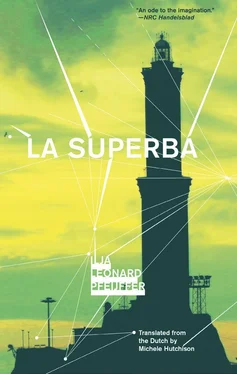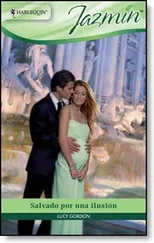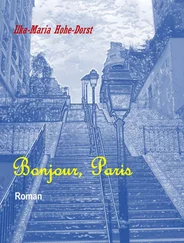“Watch out,” the signora says. “He’s a very important man. Bernardo is his name, Bernardo Massi. He’s rich.” She leaves a meaningful silence. “Very rich. Although they say his wife left him. But I know he still has a palazzo on the Piazza Corvetto.” I nodded to show I’d understood how significant that was. I tried to get a better look at him but some tourists had sat down at the table between him and me. They were seriously blocking the view with an excess of cameras and sticky body parts, peering at a map. The waitress came and they ordered a beer and an iced tea. The waitress asked whether they wanted anything to eat. They have the charming habit here of serving a range of snacks with the aperitif, with the compliments of the establishment. But the tourists became acutely suspicious, suspecting it was a dirty trick to make them pay for more than the two drinks they’d ordered and which would certainly be too expensive, here right in the center, and you know, you have to be very careful in these southern countries because they’ll rip you off right in front of your nose, and in any case we’re never coming back here, it’s much too expensive, but why am I fussing about it, are you fussing about it, we’re on holiday, so we’d better enjoy it, otherwise you don’t really have a life do you, that’s what I always say, it’s pretty important to enjoy yourself in life, even on holiday, so let’s just drink our drinks.
I don’t know whether it’s shamelessness, indifference, or a cultural code. But why in God’s name do tourists have to wear their dirty underwear as soon they sit down in a southern country and block my view? He was wearing a stained t-shirt from a German football club and shorts that had been washed to shreds; she was wearing comfy, baggy holiday shorts. They looked like intelligent, wealthy people to me. No doubt they had a house in Dortmund and a delectable DVD collection in their designer shelving unit, a car with fancy wheel trims in the garage, and evening wear for their work’s New Year’s reception in their recessed wardrobe.
In the Pré quarter, where Rashid lives along with the rest of Africa, every underprivileged illegal immigrant spends the first sixty euros he earns on a fake Rolex with imitation diamonds so that he can begin to fit in a little bit with the respectable Europeans, and those heirs of the wirtschaftswunder were just sitting there in their underwear. What kind of an impression do you think that made? And what do you think it means? What did they mean to say by this? If you’re on the beach by the Deiva Marina or at a campsite in Pieve Ligure I can understand it. But this was right in front of my view, on the most precious terrace in the city, in the shadow of centuries, in the historical center of Genoa, La Superba, the heart of the heartless one that had allowed them to penetrate to the roots of her pride. Does it mean they don’t understand or they don’t want to understand? Or are they sending out a special message? Like: We just happen to be on holiday here, nice to get away from all the stress, and that’s why we’re doing what we want, just having a lovely nice time being ourselves for those three weeks a year, you know. Or: Those Italians don’t know a thing, it’s just one big hip-hip-hooray beach from the Costa Brava to Alanya. Or is it actually intended as a status symbol dressing like that, does it mean you can permit yourselves to go on holiday without caring about anything whatsoever?
“Don’t be fooled by appearances,” the signora said.
“My apologies, signora, I was distracted for a moment.”
“He looks like an unmade bed. He dresses as though he has shares in the illegal sewing shops in the Pré. It wouldn’t surprise me if he did. I must ask Ursula some time.”
“Who are you talking about?”
“Ursula Smeraldo. She has a countess in her family. By marriage, though. And just between you and me, she’s rather down on her luck, if you get my meaning. But we’re practically neighbors on the Via Giustiniani, and it would be strange if I didn’t greet her. What’s more, she knows what’s going on.”
The tourists’ shamelessness reached a new low. They’d unfolded their map and asked the waitress where something was. They had the goddamn guts to speak to her! Probably about something ridiculous like the aquarium. She stood bent over their table for minutes on end, giving them all kinds of explanations. My waitress. She was sacred. No one can ask her the way to the aquarium in their underpants. She’s not allowed to reply, and certainly not so extensively and sweetly and prettily. Not so sweetly and prettily. Not so extensively. Not so bent over and so much in my line of vision it hurt.
“I know about her, too.”
I gave the signora an irritated look.
“Ursula told me that Bernardo Massi broke up with his wife. But everyone knows that he’s powerful and important, that he’s rich, I mean, even though he dresses like a tramp. Don’t be fooled by the exterior. Everything is hidden in Genoa. We don’t have any squares with fountains, no palazzi with fancy façades. All the gold and art treasures are hidden away behind incredibly thick walls of common gray limestone. A true businessman stashes away his fortune in an old sock and goes out onto the street wearing tatters in the hope of receiving alms. In Milan and Rome, everyone wants to show off everything, fare bella figura , with a flamboyant display of good taste and excess. In Genoa everyone understands that it doesn’t give you an advantage. To the contrary. The man who splashes his wealth about ostentatiously has far too many friends, as the saying goes. The saying is a bit different from that, but you understand what I’m saying. Do you understand what I’m saying? You have to learn how to behave in this city. It’s a porcelain grotto.”
“I think I can only see the exterior,” I say. Only then did the waitress turn around. She asked us whether we might like something to eat. She asked it coolly, unapproachably, and proud, like someone with a countess in her family, like the marble duchess herself — La Superba.
10.
If I think about these notes, my friend, and think about how I’ll turn them into a novel someday, a novel that needs to be carried along by a protagonist who will sing himself free from me and insist on the right to his or her own name, experiences, and downfall in exchange for my personal confrontation with my new city, which is more like a triumphal tour than a tragic course toward inevitable failure — and, on the grounds of that alone, is not suitable material for a great book — then I think about how crucial it will be to make tangible sense of the feeling of happiness that this city has given me time after time, even if only as a sparkling prelude to the punches of fate. Happiness, I say. I realize you could no longer repress a giggle when I said that. I realize that it’s strange to hear such a weak and hackneyed word come out of my mouth. Happiness is something for lovers before they have their first fight, for girls in floral dresses at the seaside who don’t see the jellyfish and the ptomaines, or for an old man with a photo album who can no longer really tell the difference between the past and the present. Happiness is basically a temporary illusion without any profundity, style, or class. The candy floss of emotions. And yet, for lack of a better word, I feel happy in Genoa, in a golden yellow, slow, permanent way. Not like candy floss, but like good glass. Not like a carnival, but like a primeval forest. Not like the clash of cymbals, but a symphony.
It is also remarkable, or I daresay unbelievable, that happiness is dependent upon location, on longitude and latitude, city limits, pavement, and street names. I’ve read enough philosophy, both Western and Eastern, to realize that wisdom dictates you should laugh at me and dismiss my sensation as an aberrance. So be it. That’s the point. The more I think about it as I write these words, the more I become convinced of the importance of putting into words this impossible, undesirable, unbelievable feeling of happiness.
Читать дальше












